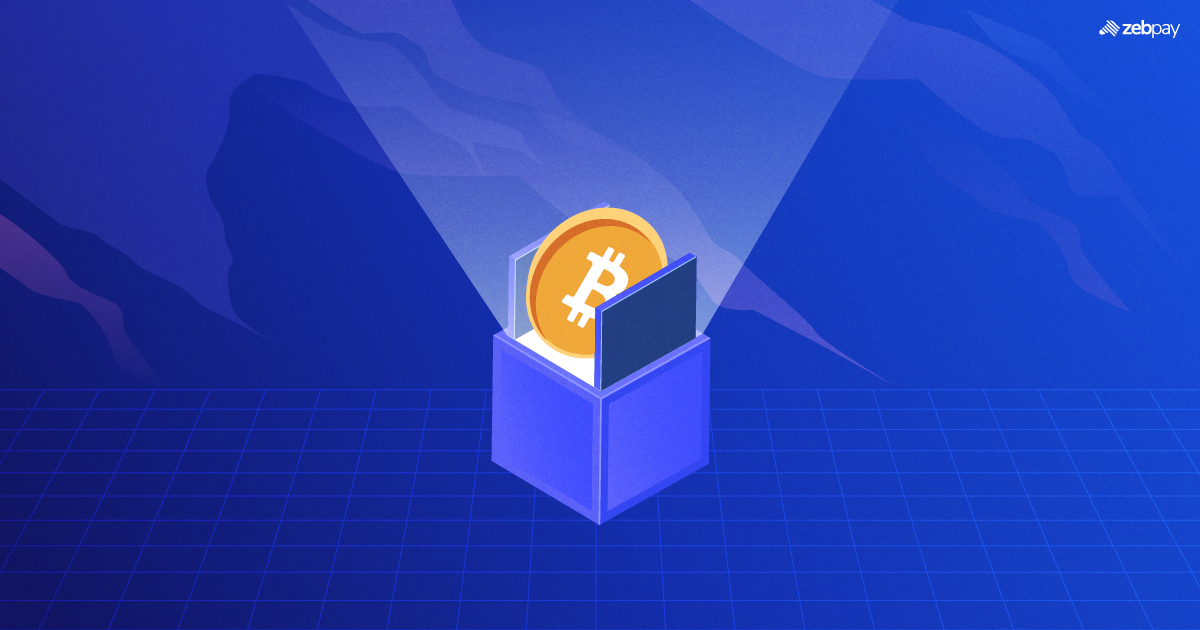08 January 2023 | ZebPay Trade-Desk
In this article, we will debunk some of the biggest myths about the power consumption of Bitcoin. Let’s take a look at the seven biggest energy myths for the oldest and largest crypto and why they are wrong.
Myth #1: Bitcoin Mining Has a Large Carbon Footprint
According to Digicoinomist, BTC mining has the same carbon footprint as Colombia – sounds terrible but lacks context. First, Colombia’s carbon footprint in 2018 ranked only 45th compared to the world’s top “polluters”. Colombia accounts for 0.4% of global carbon emissions. For comparison, China’s carbon footprint is 150 times that of the US. Burning natural gas has a carbon footprint 10 times larger than mining BTC and yields no profit unless excess energy is used. Second, it can be argued that BTC mining is being judged on a moral basis without reason.
Even if we assume that all bitcoins are constantly used for speculative purposes (which is false), this argument is wrong. For two reasons. First, what would the carbon footprint be like if speculators used something other than BTC? Critics claim that mining leaves a carbon footprint where none would otherwise, but that’s not true. All these other speculation-driven sectors also have a carbon footprint. No one has ever studied lottery or sports betting emissions on the scale of Bitcoin. Second, we cannot weigh the positive externalities of Bitcoin (wealth preservation, peer-to-peer money transfers) against the negative ones (Mining). It is almost impossible to find rational arguments for both sides. Yet somehow the traditional financial industry is not held to the same standards.
Myth #2: Bitcoin is Displacing Other Industries with Mining and Driving up Electricity Bills.
This argument also misses two important acts. First, the design encourages miners to seek out the cheapest source of energy. This is why gas flare mining is so attractive, and mining in countries like Kazakhstan with low electricity costs is attractive. But in most cases, miners will not compete with residential electricity demand.
Second, grid failures due to overdemand are market feedback. Bitcoin miners simply found an inefficiency in the market (cheap electricity) and shut it down. In fact, bitcoin miners provide valuable feedback. With the right regulation, you could even tax miners.
Myth #3: Bitcoin Mining is Bad For the Grid
Let’s be clear that miners cannot be blamed for bad infrastructure. But do they contribute to congestion? Not necessarily. For example, miners in Texas shut down their drilling rigs during a recent heat wave. Because mining rigs can be shut down at very short notice (think minutes), they can respond to power demand in real time. If anything, bitcoin mining is good for the network as it helps smooth demand.
Myth #4: Bitcoin Mining is not Great for the Endangered Communities
This study argues that BTC mining exploits “economic instability, weak regulations, and access to cheap and different resources.” But the solution here should be resolving economic instabilities and weak regulations.
To reiterate a point already raised, miners simply provide feedback to the market. One solution is not to ban market participants but improve market rules. Furthermore, a “global ban” on mining is highly unrealistic, as countries will be incentivized to migrate and collect the economic rents from miners in search of cheap electricity.
Read more: What is Bitcoin Hash Rate
Myth #5: Bitcoin’s Energy Consumption Per Transaction is a Lot Higher
This is another recurring argument from critics. However, it combines the concept of marginal energy consumption and general energy consumption. Lyn Alden explains it well with the following example (paraphrased): Your washing machine uses the same amount of energy whether it’s full or not. In the same way, mined BTC blocks consume the same amount of energy whether block space is used or not. You may be annoyed that your washing machine is dirty. You can choose to hand wash, or you can think that washing your clothes is morally wrong in the first place. But the extra pair of dirty socks does not increase or decrease the CO2 consumption per sock washed. So no, you cannot linearly measure BTC energy consumption.
Read more: What is Bitcoin Halving
Myth #6: Bitcoin Mining is Inherently Wasteful
The final argument is that mining is just wasteful and we should use existing alternatives to store value and transactions. First of all, energy is not just electricity. While BTC mining nominally uses a lot of electricity, that’s not a problem when the electricity is plentiful and clean. We can solve the latter through regulation, we have to solve the former independently of Bitcoin mining.
Second, Bitcoin’s marketplace competition isn’t any higher in terms of its environmental impact. In fact, mining gold and running bank branches leaves a larger carbon footprint than mining Bitcoin. Hass McCook went deeper into his 10-part article on the cost and sustainability of BTC, but the key quote is: “Bitcoin consumes/emits less than half of what the gold mining industry does and less than one-fifth of what Bank branches and ATMs do.”
| Energy Used (TWh) | Tonnes of CO2 Produced | |
| Gold Mining | 85 | 35 Million |
| Gold Jewellery | 140 | 65 Million |
| Gold Recycling | 41 | 48 Million |
| Paper & Currency minting | 15 | 8 Million |
| Bank Branches & ATMs | 700 | 400 Million |
| Bitcoin Mining | 113 | 70 Million |

